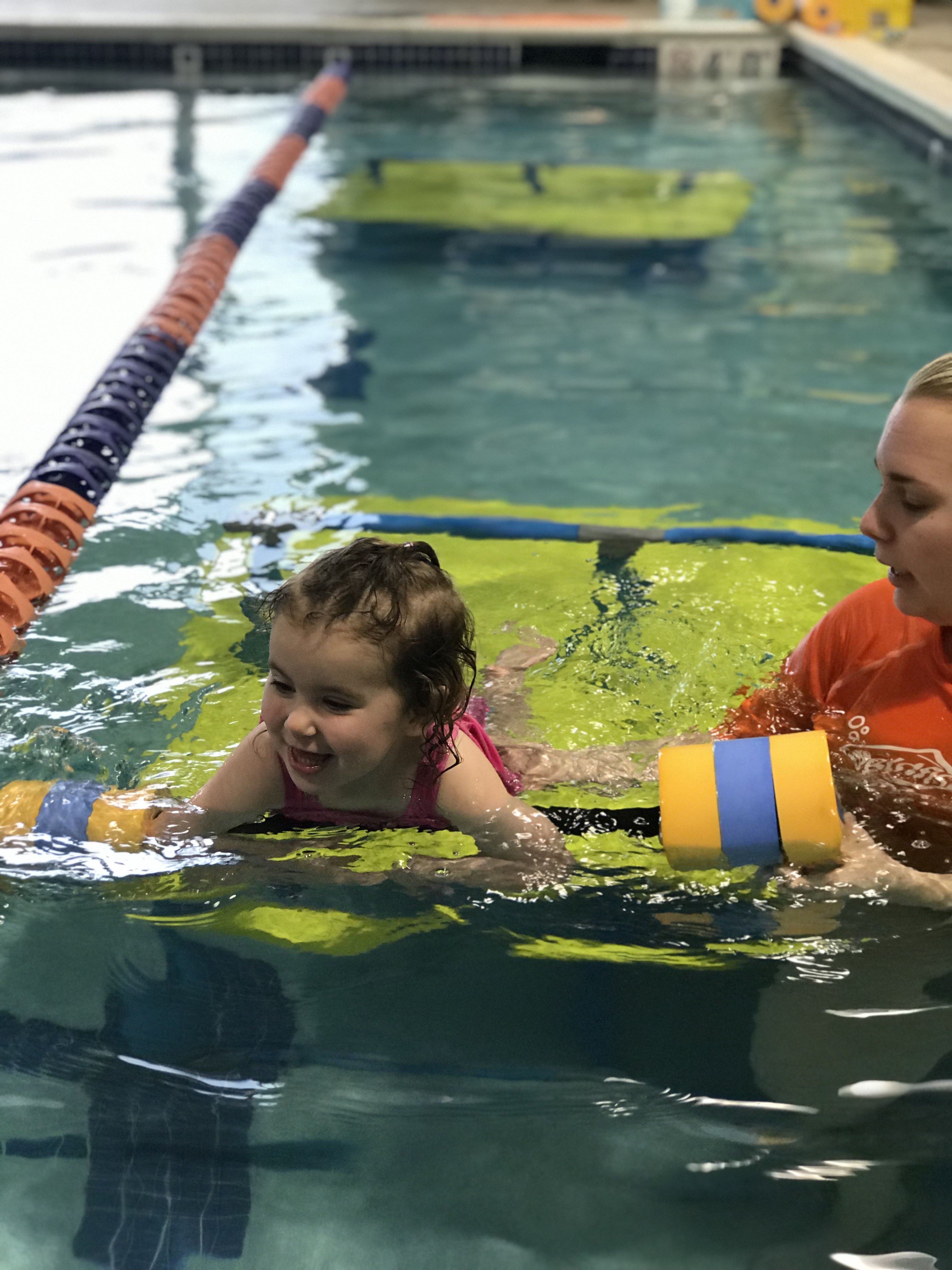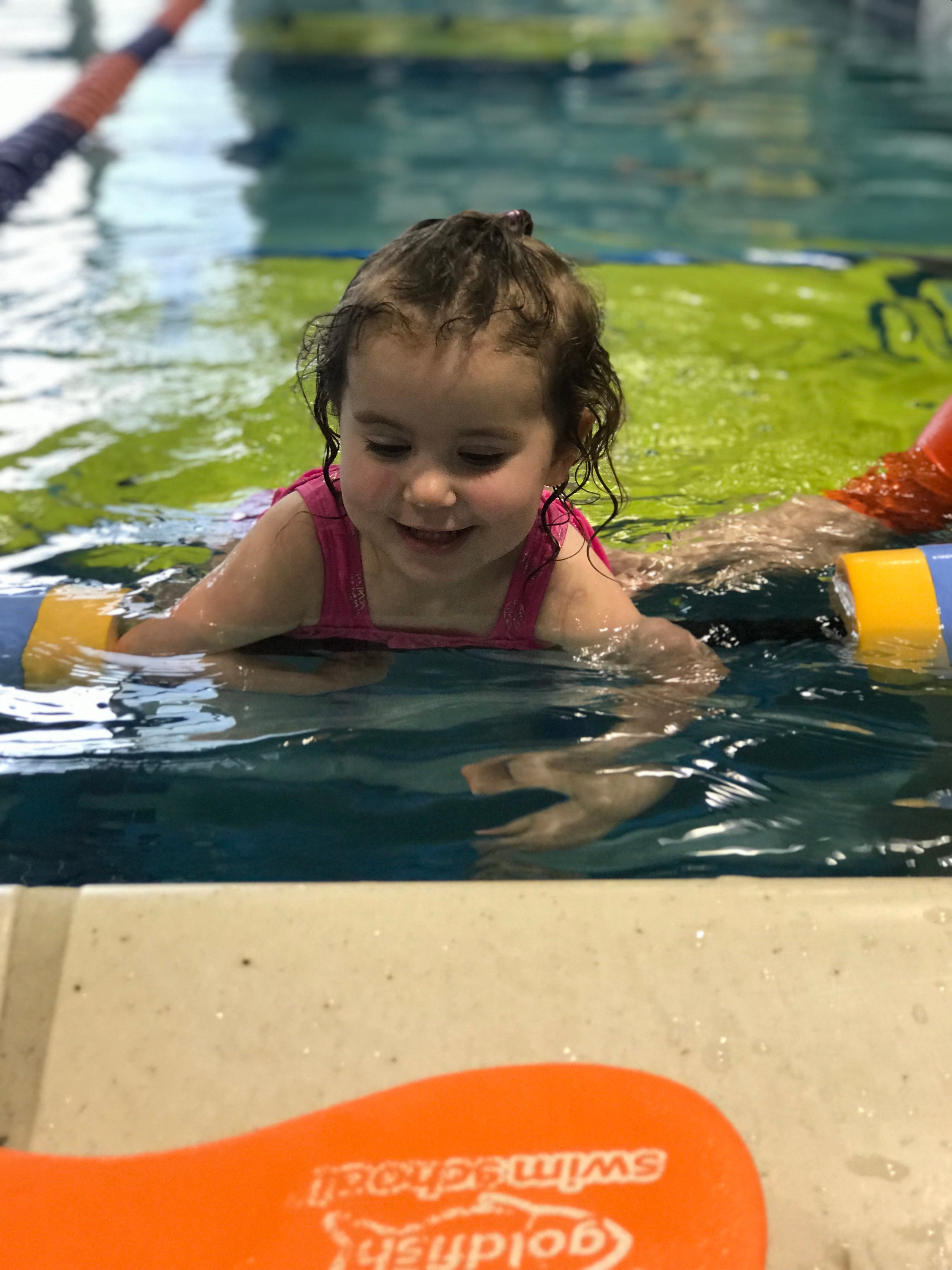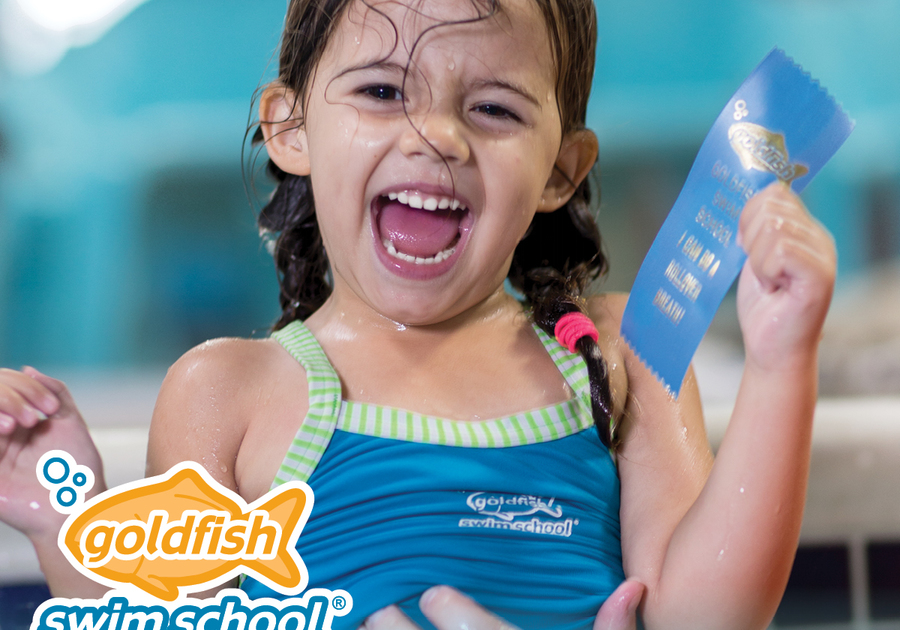When my husband and I began our family we were living in South Florida in a home surrounded by water. Canals lined the perimeter of our development and a lake was steps away from our backdoor, as well as an inviting pool.
When our son was only a few months old there was a terrible incident where a toddler had fallen right into one of the local canals. The only thing that saved him was the fact he had been taught how to immediately float on his back and move himself the edge which is where he waited for an adult to help him up the steep edge of the canal.
This moment, coupled with my own water insecurities, made water safety and swim lessons a priority for us as soon as our son was old enough. Every week for several years he would meet with an amazingly kind and patient teacher and work on becoming water confident and it wasn't until we moved to Chicago that we stopped lessons.
Now our family has grown and we have enrolled our 2-year-old into lessons at our local Goldfish Swim School so we can have peace of mind when in or near the water. Just because the midwest weather isn't conducive to year-round outdoor lessons that doesn't mean that year-round learning isn't possible. More and more swim schools are opening around the Chicago area, as well as lessons at the local Y or Park District locations. Chicago is a city with miles of lakefront, rivers and pools and water safety is no less important. Plus with spring and summer vacation seasons underway it is always good to be ready for those busy hotel pools and tourist-filled beaches and waterparks.
Ready. Set. Swim!
Goldfish Swim School, with locations all over, including Wicker Park and Roscoe Village, will be hosting Jump Start Clinics for swimmers of all ages and abilities this summer! Your child will have lessons for 5 consecutive days and make the equivalent of one month of progress in their skills, with the same instructor each day.
Jump Start Clinics will be held June 17 through August 23 and each clinic will meet on five consecutive weekdays. Cost is only $105 per clinic ($25 annual registration fee for new members) and they do offer a discount for siblings enrolled during the same week.
 |  |
Current Water Safety Information from the AAP:
Recently the American Academy of Pediatrics announced a new policy statement on drowning prevention that broadens the scope of when to start swim lessons and provides essential tools and information for parents to help prevent drowning.
This, coupled with a new toolkit that parents can use to better understand water safety at every age, is a marked change from their past recommendations.
The AAP wholeheartedly recommends swim lessons starting at age one and as a family.
Besides the swim lesson recommendation, the AAP also states the following for drowning prevention:
Key recommendations
- Parents and caregivers should be advised to never — even for a moment — leave young children alone or in the care of another young child while in or near bathtubs, pools, spas, wading pools, irrigation ditches, ponds or other open standing water.
- Parents and caregivers must be aware of drowning risks associated with hazards in the home, including infant bath seats, toilets, and containers filled with water.
- Supervision of children in and around the water must be close, constant and attentive.
- Families should install a four-sided fence that separates the pool from the house and the rest of the yard with a self-closing, self-latching gate.
- Parents, caregivers, and pool owners should learn CPR and keep a telephone and equipment approved by the U.S. Coast Guard (e.g., life buoys, life jackets and a reach tool, such as a shepherd’s crook) near pools.
- Children and parents need to learn to swim. Basic water competency swim skills include the ability to enter the water, surface, turn around, propel oneself for at least 25 yards and then exit the water.
- All children and adolescents should be required to wear U.S. Coast Guard-approved life jackets whenever they are in or on watercraft, and all adults should wear life jackets when boating to model safe behavior and to facilitate their ability to help their child in case of emergency. Small children and non-swimmers should wear life jackets when they are near water and when swimming.



